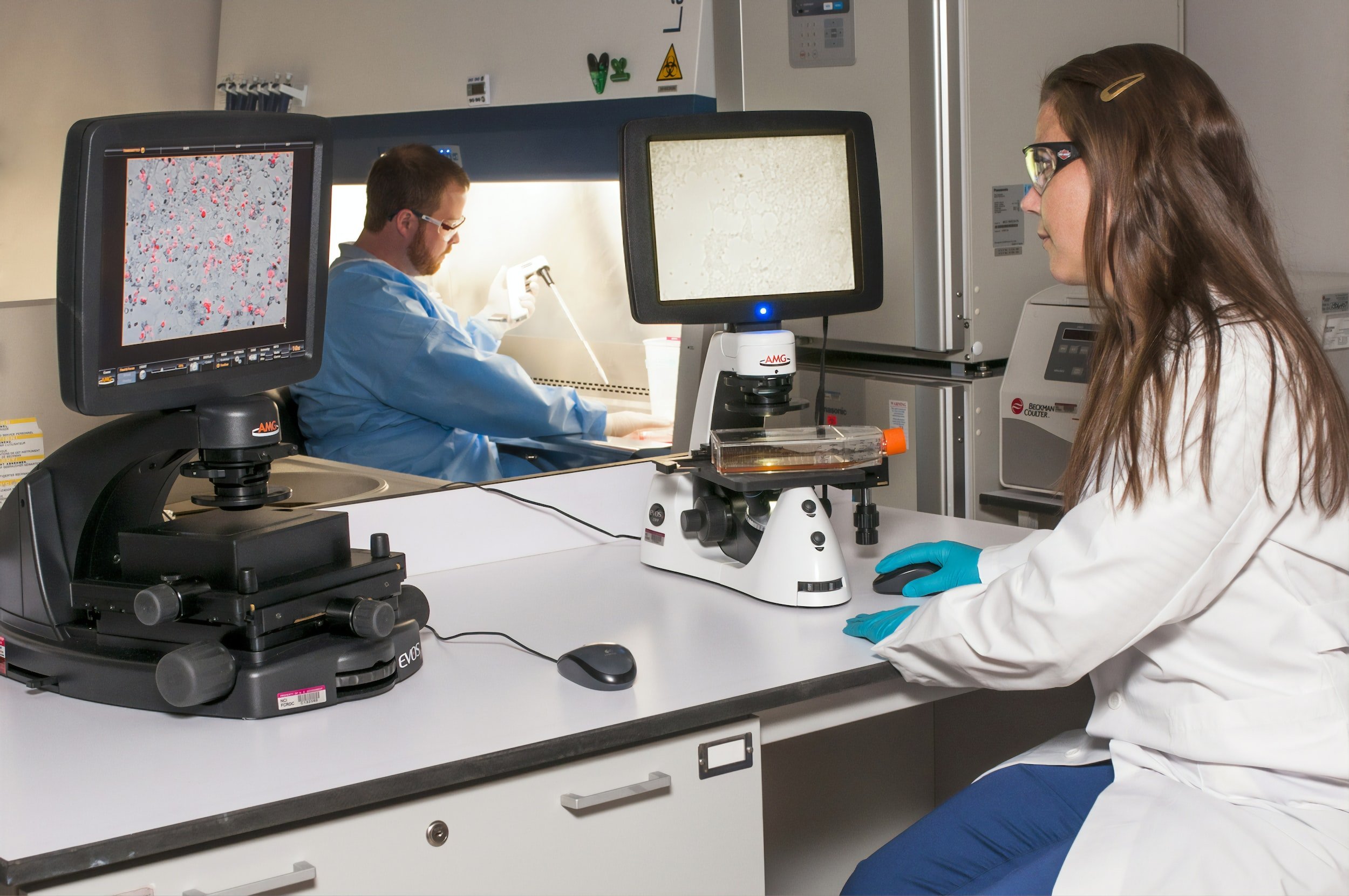Our 2022 Initiatives.
The 2021-2022 funding cycle was a huge success. After the COVID-19 crisis, funding for cancer research was scarce but the ideas that researchers had were still ground-breaking. Our incredible grant applicants blew us away with their intelligence and ingenuity. We are impressed and proud of recipients perseverance over the past few years and cannot wait to see how their projects progress.
Unlocking the Cancer-killing Capacity of T Cells.
At the Gladstone-UCSF Institute of Genomic Immunology, Alex Marson, MD, PhD is pioneering the application of CRISPR to better understand the human immune system and its interaction with cancer. By combining CRISPR screening in human cancer cells with deep expertise in T cell immunobiology, Dr. Marson is unraveling the genetic programs dictating T cell recognition of cancer cells, with the goal to develop new immunotherapeutic approaches to utilize the cancer-killing capacity of these anti-tumor weapons.
Using Nanomedicine in Prostate Cancer.
At UCSF, Robert Flavell, MD, PhD is working to advance precision oncology and improve treatments for patients with prostate cancer. Using nanomedicines, which are targeted to cause high retention of therapeutic agents within the tumor, alongside advanced imaging technology, Dr. Flavell and his team will design and test promising new formulations of nanoparticles in preclinical models of prostate cancer. When accomplished, these ground-breaking studies set the stage for further preclinical development, and potentially clinical translation of these novel therapies.
Predicting Responses to Immunotherapy.
At Stanford University, Dr. Renumathy Dhanasekaran, MD, is studying peripheral immune predictors of response to immunotherapy in liver cancer. Liver cancer is a dreaded disease whose incidence is increasing significantly in the United States, particularly in the Bay area. Immunotherapies have recently shown to be promising options to treat liver cancer. However, only a minority of patients show meaningful response and a substantial number develop severe autoimmune adverse events. Dr. Renumathy Dhanasekaran is employing novel technologies to develop non-invasive blood-based biomarkers which predict which patients with liver cancer will respond to immunotherapy while still tolerating it well. By creating a molecular atlas of response to immunotherapy, they expect to advance the knowledge of immune mechanisms of therapy-resistance in liver cancer. This will have the incredible impact of enabling personalized treatment decisions for patients with liver cancer.
Lazarex - Improving Clinical Trial Diversity.
Lazarex Cancer Foundation was founded in 2006 to bridge the financial, emotional and physical gap between cancer patients and the breakthrough clinical trials they wish to participate in. For patients who qualify for these trials but cannot financially or logistically afford to participate, Lazarex CARE program grants access to this care by providing assistance with clinical trial navigation, reimbursing trial related travel costs, and partnering with at-risk communities to mobilize much needed resources. Lazarex is a publicly funded charity and has served over 7,000 patients in cancer clinical trials with the goal of improving cancer health outcomes and clinical trial diversity and enrollment.
Culinary Angels - Healing Meals for Health.
Culinary Angels is a mostly-volunteer organization that provides organic, healthy meals to people going through a cancer challenge. Meals are delivered at no cost throughout much of the East Bay to both cancer patients and their caregivers. Their goal is to deliver nutrient-dense meals and nutrition education to underserved individuals throughout the community. Since their launch in 2016, Culinary Angels has prepared and delivered over 9,500 meals to those in need and utilizes 45-50 volunteers every week executing this effort.





